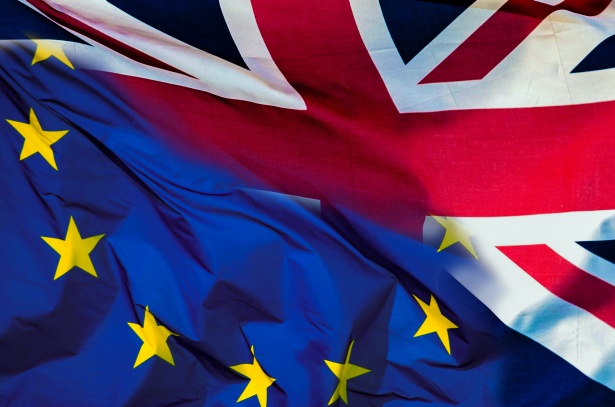
The refugee crisis has also added to this concern. This week I was speaking with a number of Greek companies and I asked the chief economist of a large Greek bank what economic impact the refugees are having on the economy. Specifically, I made the observation that there must be significant transport and logistics systems in place to stimulate and support the flow of people into Europe and that Greece seems to be a focal point in the effort. I asked if the underground operators of such a system were keeping the cash in the Greek economy or if it was flowing out to Russian or other operators. The response was that the money was staying in the country. What the economist said next was more relevant. He indicated Greece is receiving about EUR 700M to support building shelters and other infrastructure for the refugees. Not only are Greek operators most likely profiting from and creating a flow of refugees but the EU payments represents about 0.5% of GDP to the distressed Greek economy. So Greece is highly incented to benefit in this politically charged issue, in contrast to the negative headlines and cost burdens ascribed to refugees who move on to other countries. So it appears the refugee crisis not only focused greater attention on the payee/payor inequalities but the negative refugee headlines during the Brexit vote may well have boosted support to leave.
Although less politically visible, many companies across sectors/industries have expressed concerns about the over-reaching regulations from Brussels. While this is not a populous issue, it highlights the fact that many companies now believe the regulatory burden of their home country compounded by Brussels is impairing their ability to be competitive in the global economy.
There are many arguments why an economic union has overall benefits; these are well documented in economic theory. However, as the BREXIT vote demonstrates, the political mood has changed in Europe. While the benefits of a union are understood by economists, the perception that they accrue to some but are paid by others means the social contracts have to be rethought. We think the exit vote will ultimately be healthy for the European Union. The original treaties negotiated that led to the union have developed unintended consequences that may no longer work for all members. It is logical for states outside the union to desire to join and earn the right of membership. There must also be the risk that violating terms of the union means an exit for non-compliance. If no rule exists, other European Union “payors” may decide leave. Europe must re-think the political contracts, as all politics must adapt to economic reality. We are optimistic Europe will go through a period of adjustment as it renegotiates with a separate United Kingdom and in this process it will have the opportunity to improve upon the overall project.
Polaris Capital Management LLC is an investment advisor registered with the U.S. Securities and Exchange Commission (SEC). Polaris' website provides general information regarding our business along with access to additional investment related information. Material presented is meant for informational purposes only. To the extent that you utilize any financial calculators or links in our website, you acknowledge and understand that the information provided to you should not be construed as personal investment advice from Polaris or any of its investment professionals. For additional information regarding our services, or to receive a hard copy of our firm's disclosure documents (Form ADV Part I and Form ADV Part II), contact client service. You may also obtain these disclosure documents online from the SEC Investment Adviser Public Disclosure (Firm CRD# 106278). ©2013-2025 Polaris Capital Management, LLC. All rights reserved.
This website uses necessary cookies to make our site work. A handful of non-essential cookies seek to enhance the browsing experience, analyze website traffic and improve site usage and functionality via analytics. By clicking “Accept“, you consent to accept these non-essential cookies; however, you can opt-out by clicking "Deny". See our cookie policy here.
IMPORTANT INFO: RETIREMENT CALCULATOR
The retirement calculator is a model or tool intended for informational and educational purposes only, and does not constitute professional, financial or investment advice. This model may be helpful in formulating your future plans, but does not constitute a complete financial plan. We strongly recommend that you seek the advice of a financial services professional who has a fiduciary relationship with you before making any type of investment or significant financial decision. We, at Polaris Capital, do not serve in this role for you. We also encourage you to review your investment strategy periodically as your financial circumstances change.
This model is provided as a rough approximation of future financial performance that you may encounter in reaching your retirement goals. The results presented by this model are hypothetical and may not reflect the actual growth of your own investments. Polaris strives to keep its information and tools accurate and up-to-date.
The information presented is based on objective analysis, but may not be the same that you find at a particular financial institution, service provider or specific product’s site. Polaris Capital and its employees are not responsible for the consequences of any decisions or actions taken in reliance upon or as a result of the information provided by this tool. Polaris is not responsible for any human or mechanical errors or omissions. All content, calculations, estimates, and forecasts are presented without express or implied warranties, including, but not limited to, any implied warranties of merchantability and fitness for a particular purpose or otherwise.
Please confirm your agreement/understanding of this disclaimer.
DISCLAIMER: You are about to leave the Polaris Capital Management, LLC website and will be taken to the PCM Global Funds ICAV website. By accepting, you are consenting to being directed to the PCM Global Funds ICAV website for non-U.S. investors only.